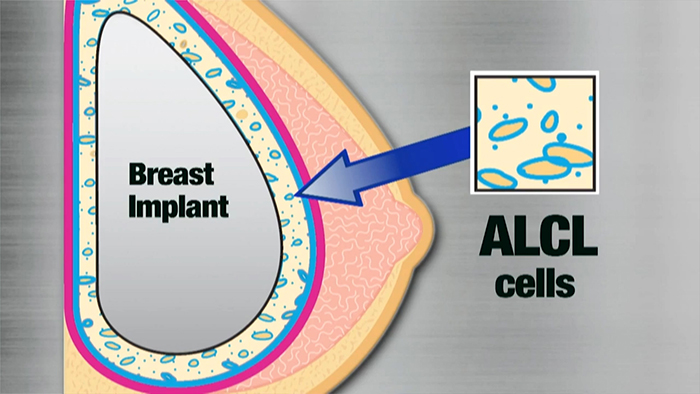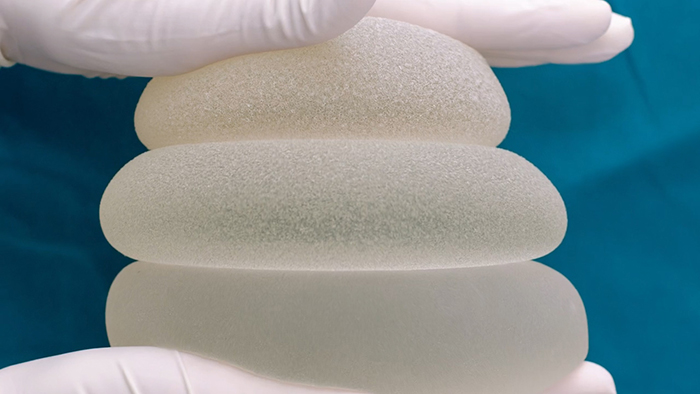Anyone considering breast implants is bombarded with information from friends, family and especially the Internet. While it’s important to be aware of any possible complications, the most important thing is to discuss any fears or concerns you may have with your surgeon. One complication you may have heard about in the news actually involves a type of rare cancer. ALCL stands for anaplastic large cell lymphoma, an extremely rare type of Non-Hodgkins Lymphoma. Unlike breast cancer, which affects breast tissue, lymphoma is a cancer of the immune system.
by Anne Meyer
and Bruce Van Natta, MD
ALCL of the Breast is NOT the Same as Systemic ALCL
Board certified plastic surgeon Dr. Bruce Van Natta addresses the topic of this rare lymphoma with patients in order to add clarity and reassure them of the safety of breast augmentation surgery. “ALCL is a little scary when you hear about it. It’s a form of lymphoma. As a systemic disease, or body-wide disease, it’s a nasty thing to have. But it turns out that there is a form of this that we’ve seen in a few patients that have had implants.” In these few cases, the patients experienced swelling and discomfort in their breasts, often several years after surgery. When the fluid and scar tissue around the implants was analyzed, ALCL cells were found to be present. “This ALCL does not act like the aggressive version that people have in their whole body,” explains Van Natta. “It turns out, if you remove that scar pocket, in the vast majority of patients, of the very few that have this, it cures them.”

ALCL by the Numbers
Just how rare is ALCL after breast augmentation? The FDA estimates that between 5-10 million women worldwide have breast implants. In 2014 alone over 285,000 women underwent breast augmentation in the United States, hundred of thousands more around the globe. In the millions of cases of breast augmentations worldwide, the FDA’s study found only sixty documented cases of ALCL occurring in the breast region after breast augmentation.
Textured Implants and ALCL
“One interesting thing,” continues Van Natta, “is that largely this has been associated with highly textured implants. So, for example, with a smooth implant – slick surface – there have actually been no documented cases. There is a theory by Dr. Anand Deva, from Australia, that with more texturing you can get biofilms, or little bacterial contamination on the surface of these implants. If it gets to a certain threshold – and that’s the key – you can potentially stimulate an inflammatory response, and they can then develop this ALCL of the breast.”

If You Notice Swelling and Discomfort, See Your Surgeon
Does this mean anyone with textured implants should be concerned? No, says Van Natta. “Again, it’s rare. If you have textured implants in, you don’t need to have them removed, but, if you ever got a fluid accumulation, you need to go see your surgeon and have that checked out.”